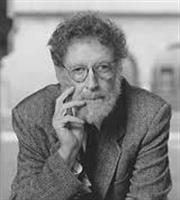John W. Meyer

Short Biography & Significant Contribution
John Meyer is a professor of sociology, emeritus and a professor of education at Stanford University. He also served as a faculty member at The Center of Democracy, Development and the Rule of Law (CDDRL) and is a senior fellow, by courtesy at The Freeman Spogli Institute for International Studies (FSI). He received his B.A. in Psychology from Goshen College, his M.A. in Sociology from the University of Colorado in 1957, and his Ph.D. in Sociology from Columbia University in 1965, where he taught for several years before teaching at Stanford. In general, his research has focused on the spread of modern institutions around the world, and their impact on nation states and societies. He is best known for the development of the neo-institutional perspective on globalization, known as world polity theory, which argues that the enactment of global models creates significant institutional similarities among dissimilar contexts. Although this "world culture" allows for states as rationalized actors, it also contains rules and models, often unstated and taken for granted, that are built into global institutions. These "scripts" exert pressure toward isomorphism or structural similarity among institutions, including educational systems.
In the 1970s, Meyer became interested in why states with very different needs and human and physical resources developed very similar educational models and practices, even if they weren't particularly well suited to their particular context. According to Meyer, states, influenced by global norms, are legitimized based on their ability to provide rational institutions that promote growth. Therefore, schools, as institutions are universally linked to the idea that learning increases human capital and that investment in education raises national productivity. The desire for growth and progress manifests itself, not in culturally relevant educational systems, but in strikingly similar pedagogy, curricula, and methods of teaching and learning.
Beyond his contributions to the field of global education, his work has focused on the spread and impact of scientific activity and the rise and impact of human rights on national societies. Meyer has authored or co-authored over 200 articles, books, and presentations, some of which appear in a retrospective of his work entitled, World Society: The Writings of John W. Meyer (Krucken & Drori, 2009).
Educational Background
B.A. Psychology, Goshen College, 1955
M.A. Sociology, University of Colorado, 1957
Ph.D. Sociology, Columbia University, 1965
Professional Background
Professor of Sociology, Stanford University, 1978- (emeritus 2001-)
Assistant-Associate Professor of Sociology, Stanford University, 1966-1978
Instructor and Assistant Professor of Sociology, Columbia University, 1959-66
Affiliations (associations, organizations, institutions)
The Center of Democracy, Development and the Rule of Law The Freeman Spogli Institute for International Studies National Academy of Education Sociological Research Association Honorary Doctorate of Sociology from the University of Lucerne, 2007 Honorary Doctorate of Sociology from the University of Bielefeld, 2006 Graduate Service Recognition Award, GSPB, Stanford University, 2001 Honorary Doctorate of Economics from Stockholm School of Economics, 1996
Selected Publications
Meyer, J. (1977). "Institutionalized Organizations: Formal Structure as Myth and Ceremony". American Journal of Sociology 83(2): 340-63.
Meyer, J. (1980). "The World Polity and the Authority of the Nation-State." In A. Bergesen (ed.), Studies of the Modern World-System. Academic Press: 109-37.
Meyer, J. & Thomas, G. (1984). "The Expansion of the State". Annual Review of Sociology 10: 461-82.
Meyer, J., Boli, J., & Ramirez, F. (1985). "Explaining the Origins and Expansion of Mass Education". Comparative Education Review 29: 145-68.
Meyer, J., Ramirez, F., & Soysal, Y. (1992). "World Expansion of Mass Education, 1870-1970". Sociology of Education 65(2): 128-49.
Meyer, J. & Strang, D. (1993). "Institutional Conditions for Diffusion" (with David Strang). Theory and Society 22: 487-511.
Meyer, J., Boli, J., Thomas, G., & Ramirez, F. (1997). "World Society and the Nation-State". American Journal of Sociology 103(1): 144-81.
Meyer, J. & Jepperson, R. (2000). "The 'Actors' of Modern Society: The Cultural Construction of Social Agency". Sociological Theory 18(1): 100-20.
Meyer, J., Drori, G., Ramirez, F., & Schofer, E. (2003). Science in the Modern World Polity: Institutionalization and Globalization . Stanford University Press.
Meyer, J., Drori, G., & Hwang, H. (2006). Globalization and Organizations (with Gili S. Drori and Hokyu Hwang). Oxford University Press.
Meyer, J. & Drori, G. (2006). "Scientization: Making a World Safe for Organizing. In M.-L. Djelic and K. Sahlin-Andersson (eds.), Transnational Governance: Institutional Dynamics of Regulation. Cambridge University Press.
Meyer, J. & Frank, D.J. (2007). "University Expansion and the Knowledge Society". Theory and Society 36(August): 287-311.
Meyer, J. (2009). World Society: The Writings of John W. Meyer (edited by Georg Krucken and Gili S. Drori). Oxford University Press.
Created: 11/14/2012
Updated: 12/4/2012
Contributed By: Joe Brereton, Lehigh
